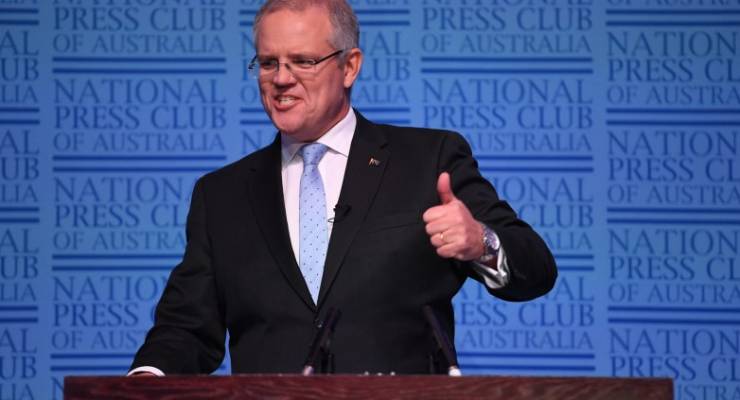
The government has sought to derail widespread calls for a federal independent commission against corruption by unveiling a severely limited “Commonwealth Integrity Commission” (CIC), which will have minimal power to investigate corruption by politicians and public officials and to which the public will not be able to complain.
The new body, which is planned to cost $30 million a year and employ up to 150 full-time staff, will incorporate the existing, and widely derided, Australian Commission for Law Enforcement Integrity, as its law-enforcement division, to be joined by a separate division devoted to public service and political corruption.
The government proposes to expand the range of criminal offences that would fall within the ambit of the public sector corruption but the new body’s investigations would be curtailed to criminal conduct above a certain threshold: “serious or systemic corrupt conduct, rather than looking into issues of misconduct or non-compliance under various codes of conduct”.
Crucially, the public sector integrity division would be banned from conducting public hearings or making public findings of corruption — its work would be entirely hidden behind closed doors, with the only product being referrals to the politically appointed Commonwealth Director of Public Prosecution, who could decide to ignore the referral. Voters would be unaware of the outcome of investigations, or even of their existence, since there would be no public hearings to embarrass politicians.
Astonishingly, the new body will also be banned from taking complaints about corrupt politicians and public servants from the public, with the government proposing “the CIC will not investigate direct complaints about Ministers, Members of Parliament or their staff received from the public at large.”
Indeed, it will only be able to investigate public sector corruption if referred by another agency — it will be required to ignore information from the public, whistleblowers or the media about corruption unless that information is channelled through another agency or department. It can only initiate its own investigations if an existing inquiry reveals different corrupt conduct not encompassed in the original investigation.
The CIC proposal stands as one of the most cynical acts of a profoundly cynical and desperate party. The Liberals have refused to date to countenance a federal ICAC, and the Nationals have openly objected to one for the scrutiny it would bring to their administration of Commonwealth grants. Now, in an effort to placate widespread demands across the political spectrum to end the useless mess of existing anti-corruption measures at the Commonwealth level, the government has proposed a weak, silent watchpoodle. It’s too little and too late from a government that has fought tooth and nail against transparency for itself and its business allies.








That’ll do it Scotty…that’ll counter the ALP, you’ve snookered them you bloody genius. It’s like Tony and the NBN he made Turnbull roll out using two jam tins and a length of twine. Or the Gonski Mk 2 where we send an extra bit of chalk to public schools and install a new pool and polo field in private schools.
It looks like ScoMo has learned something from the banking royal commission. Better to have a fake initiative early than a real one later.
A naked political ploy as empty as the bus.
Our very own FauxMo has racked up an imposing record of hollow gestures for his short tenure. They are each designed to give an impression rather than achieve anything real. It is almost as if he was running an ad agency rather than a serious government … oh! wait!
For once we agree 100%. Blatant paper tiger.
Hopefully the ALP and cross-bench rip this latest “tough cop on the beat” proposal to shreds and insist on doing this properly.
Sounds like CIC should stand for “Clayton’s Integrity Commission”. Non-retrospective (can’t have Parakeelia, Free Enterprise Foundation, Au Pairs or AFP leaks getting looked into, now can we?), totally secretive & with no real powers of enforcement…..& what’s to bet that the Librorts Party will reserve the right to select who is on the commission?
As with the Royal Commission into Banks, this is more about the *appearance* of doing something, even if what they’re doing is actually worse than doing nothing at all.